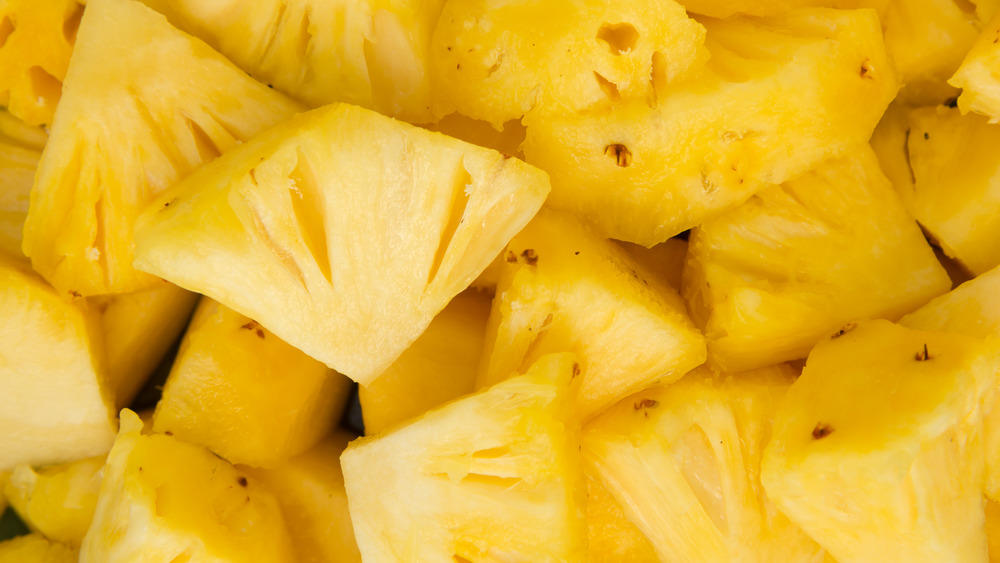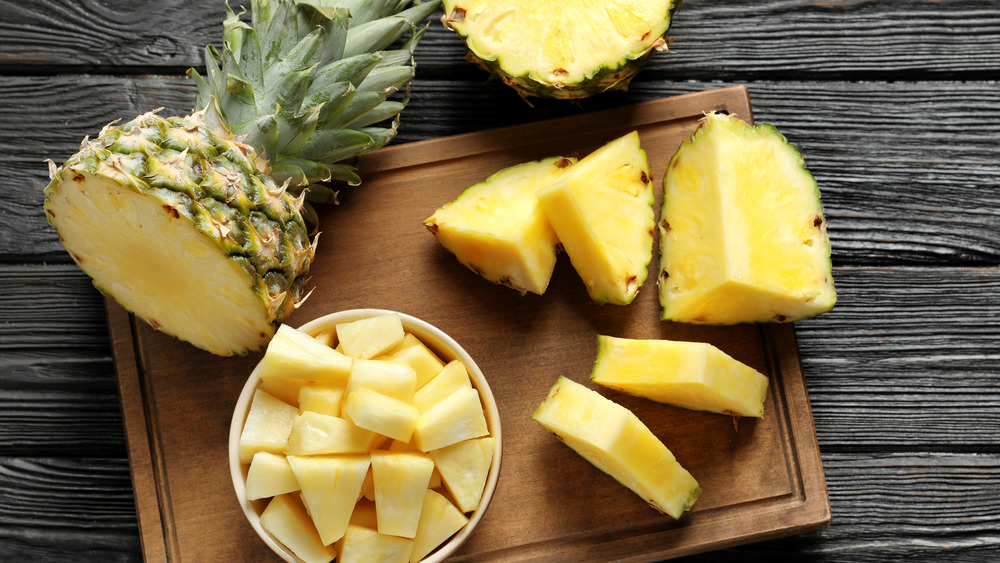The Real Reason Pineapple Hurts Your Tongue
The canned stuff is great and the frozen stuff is great, but nothing beats the tangy juiciness of biting into a hunk of fresh pineapple. There are more reasons to eat it than its taste alone — the tropical fruit is full of health benefits, too. According to Healthline, a serving of pineapple provides 131 percent of your daily vitamin C needs, along with significant amounts of manganese, vitamins A and K, and calcium. The fruit is also full of immune-boosting antioxidants.
Digging into a bowl of fresh pineapple is very satisfying, especially on a hot summer day. But if you've ever eaten a lot of the fruit in one sitting, you might notice that your tongue and the roof of your mouth experience an uncomfortable burning sensation. Fear not — you aren't alone, and it's very normal. But what causes the unpleasant side effect? Here's why pineapple can "burn" your mouth after eating it.
It's due to an enzyme found in pineapple
Many people believe that the burning feeling is caused by pineapple's high level of acidity. This is somewhat true — Livestrong notes that the fruit is very acidic, with a pH level between 3.2 and 4, which can cause side effects like heartburn. But the infamous (and irritating) pineapple burn is more likely due to an enzyme known as bromelain. Bon Appétit explains that bromelain breaks down amino acids like proteins so, when you're eating pineapple, it slowly eats away at the mucous lining of your mouth and tongue. Ouch.
Don't be too alarmed, however. Despite how painful it can be, bromelain is also good for your body. The enzyme has anti-inflammatory properties, which can help reduce the effects of arthritis, and has been reported to decrease the risk of cardiovascular disease, Healthline reports. Seems like in the case of pineapple, the old adage "no pain, no gain" applies.

